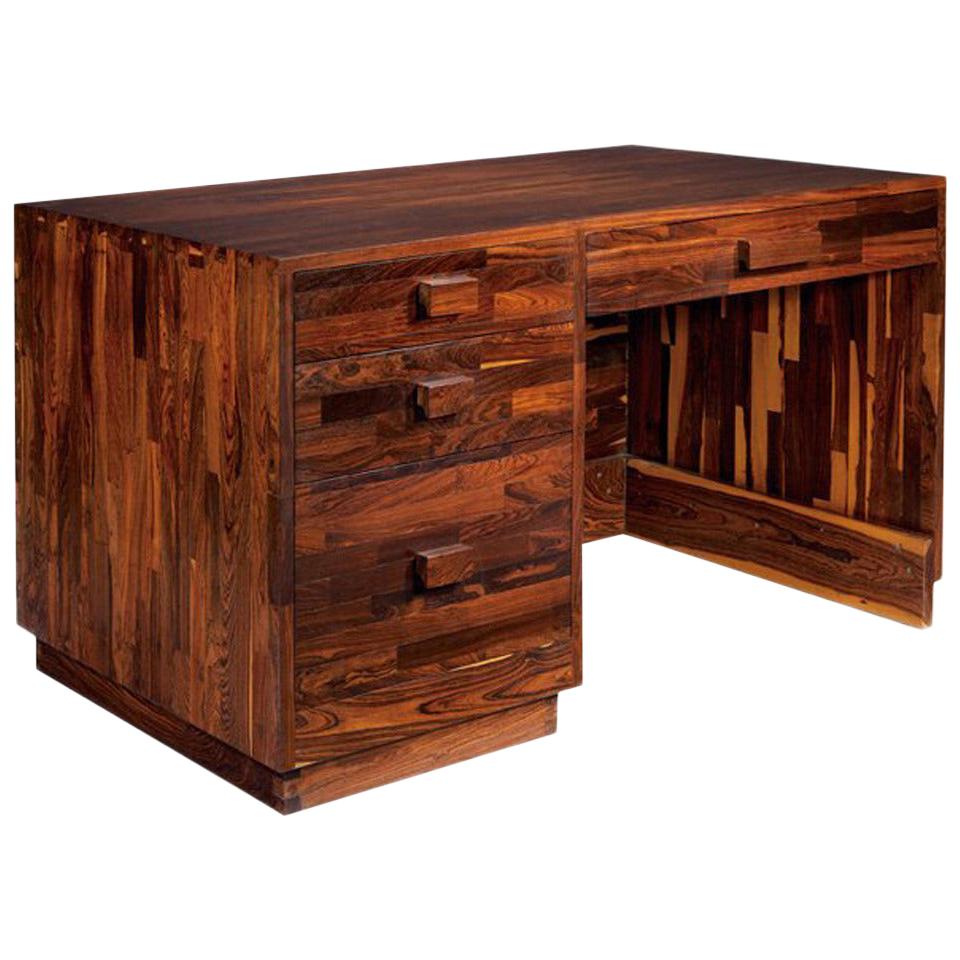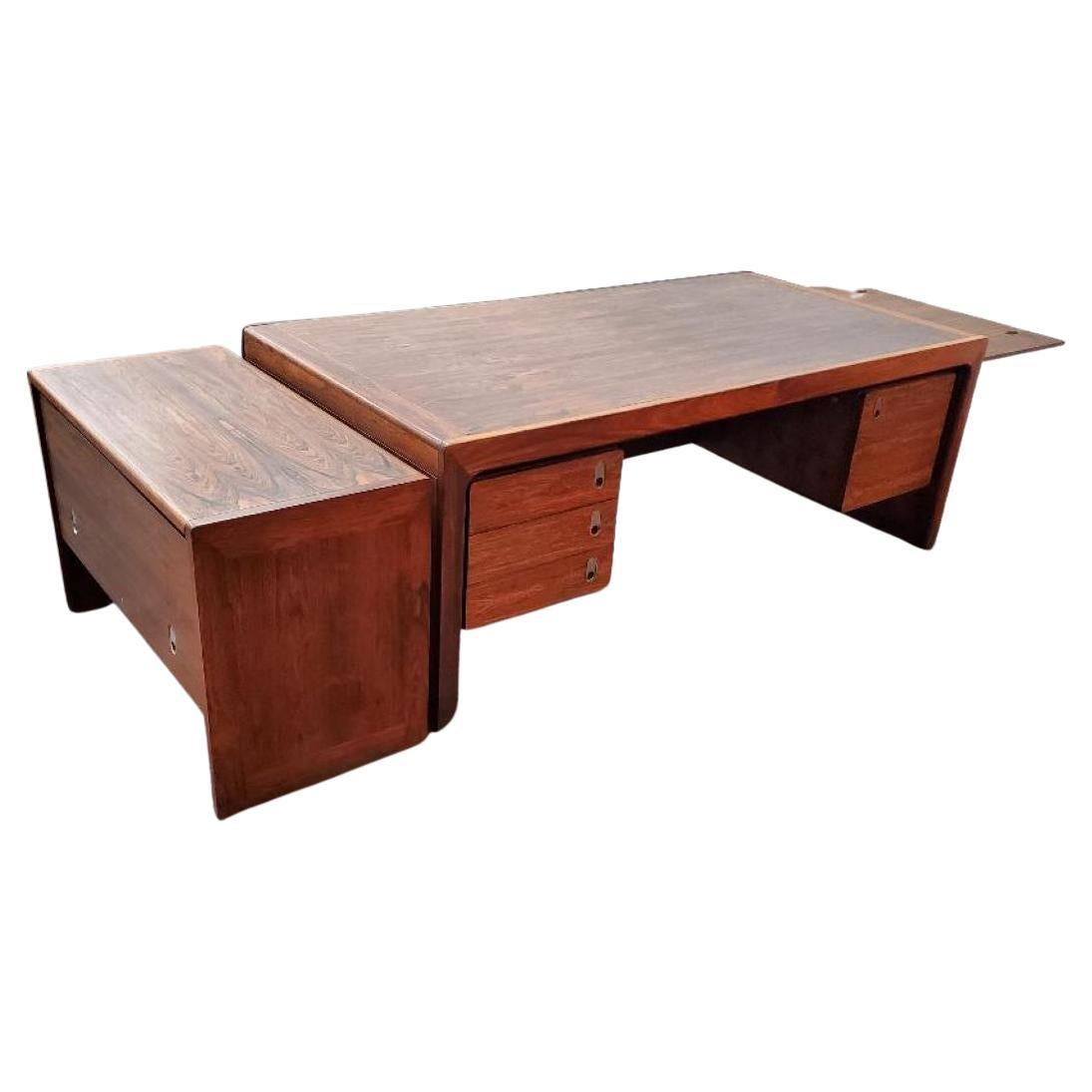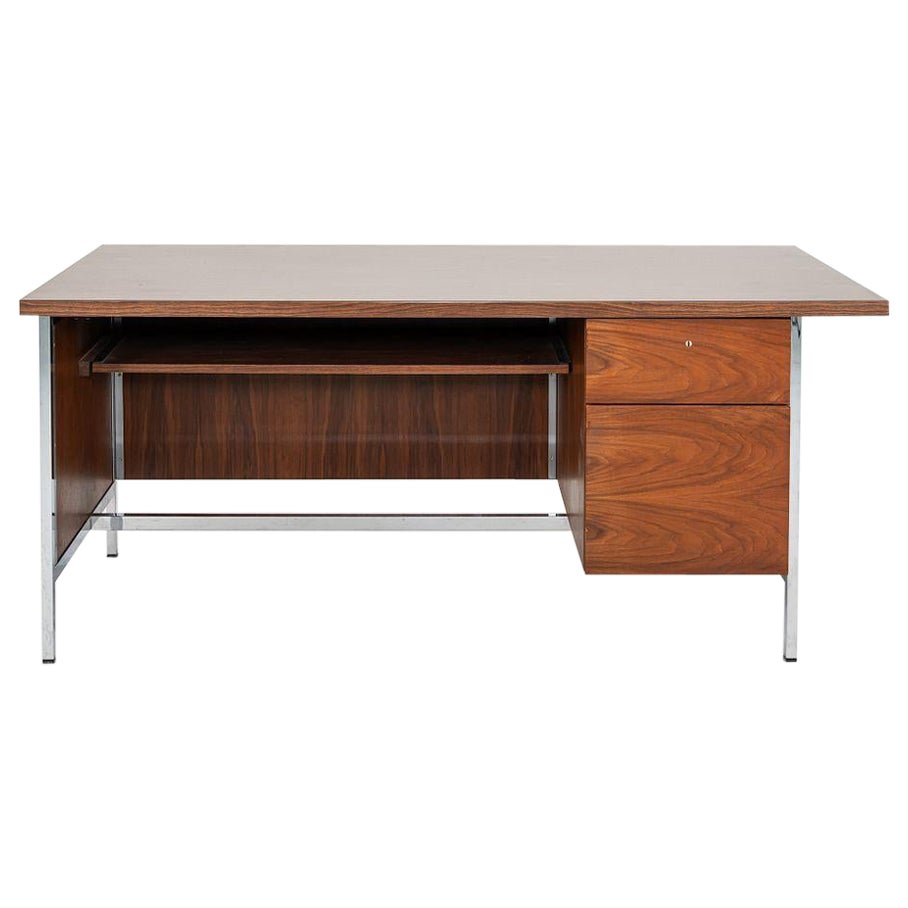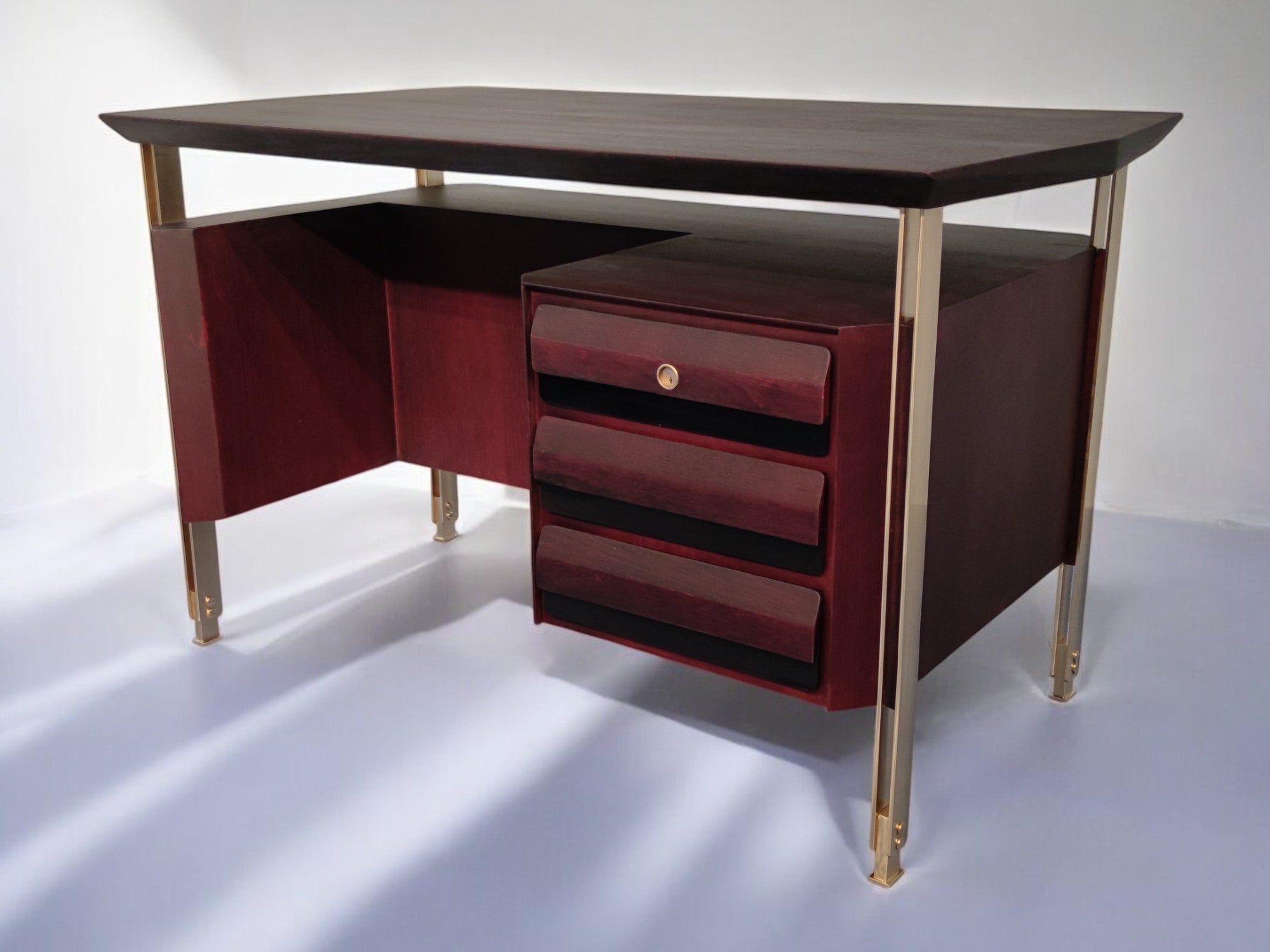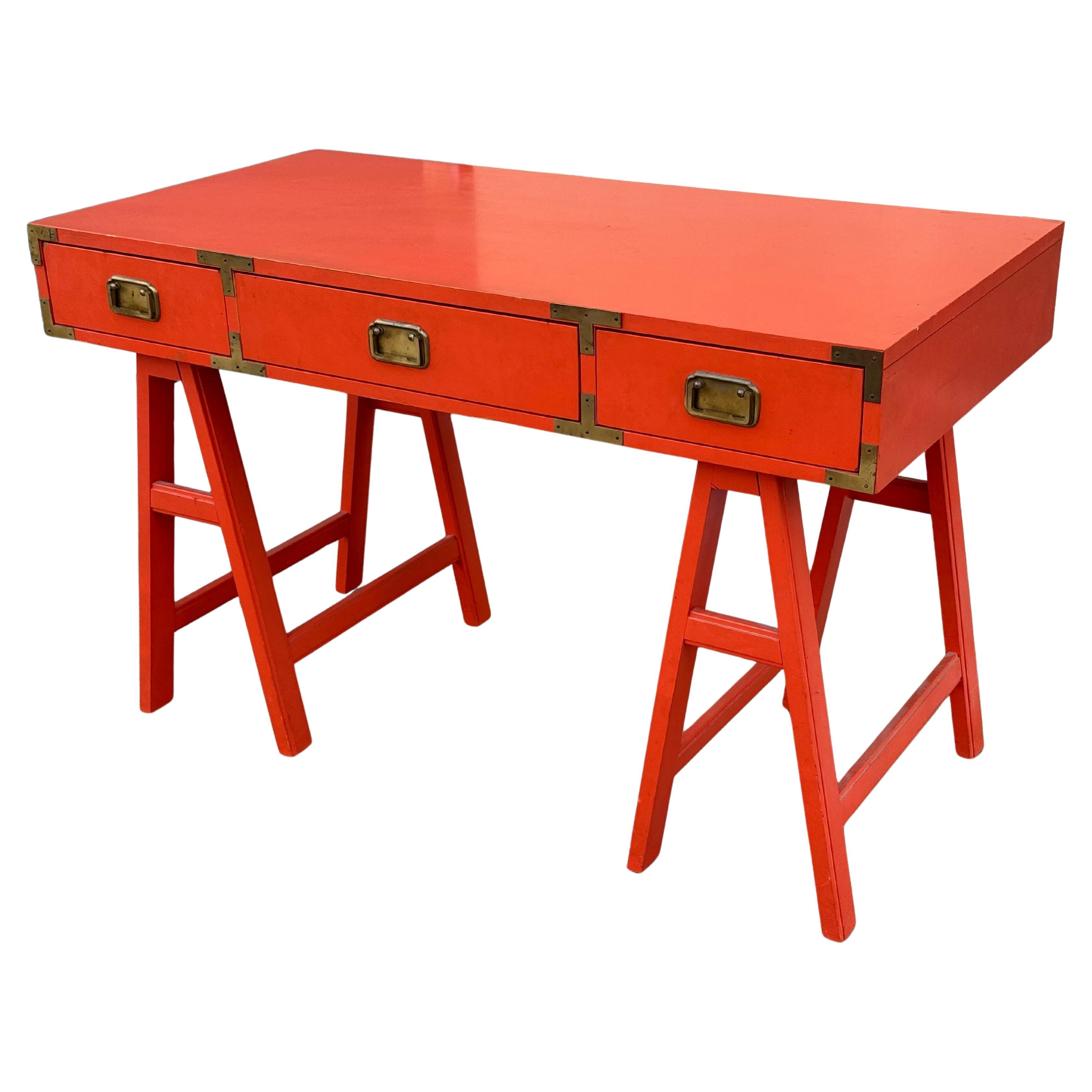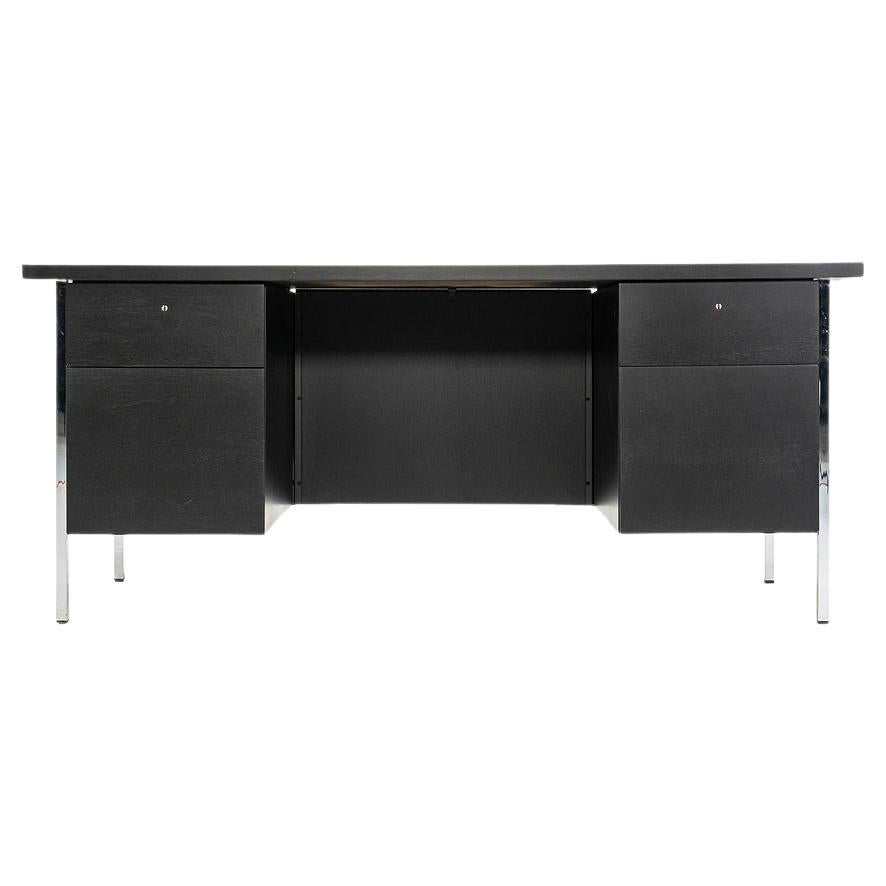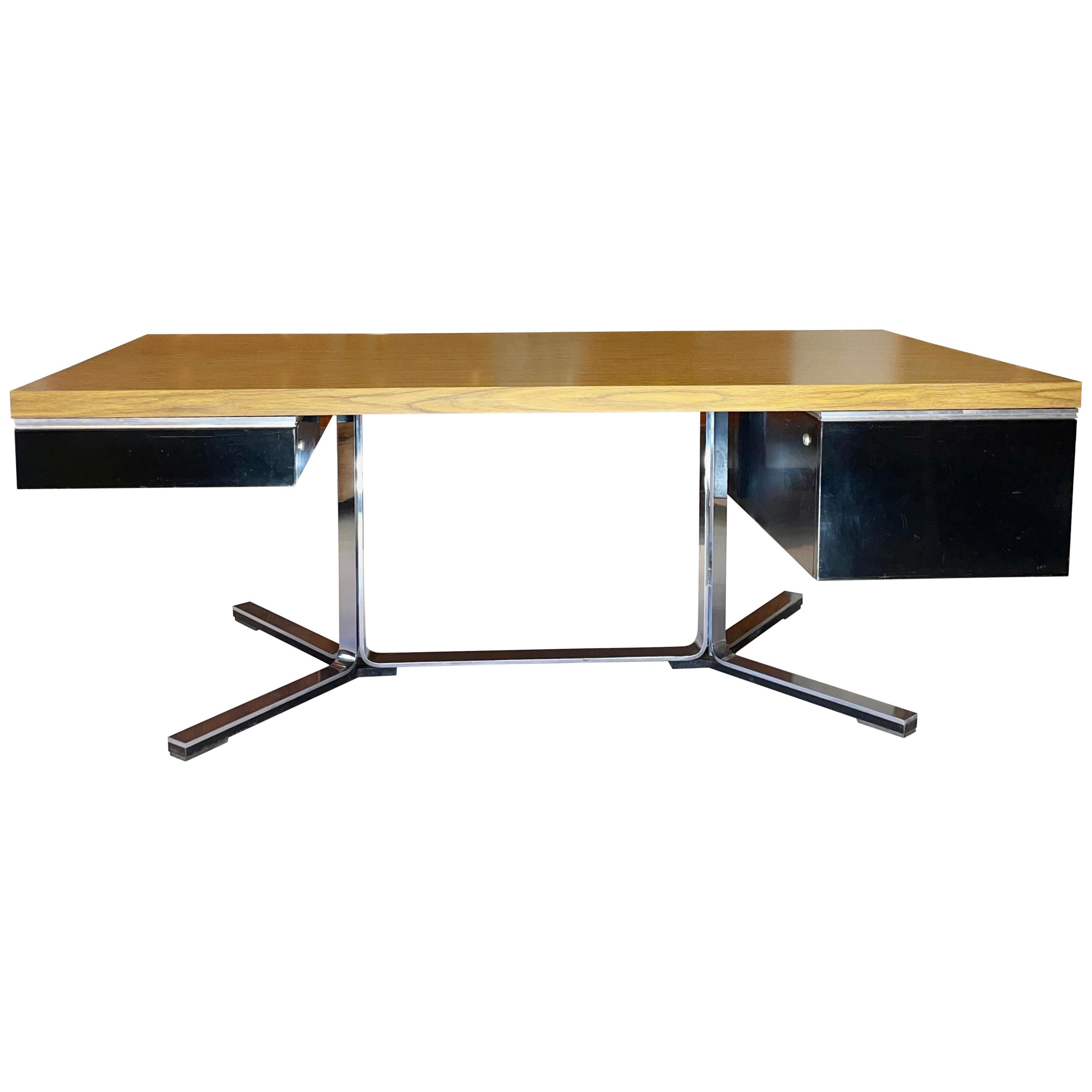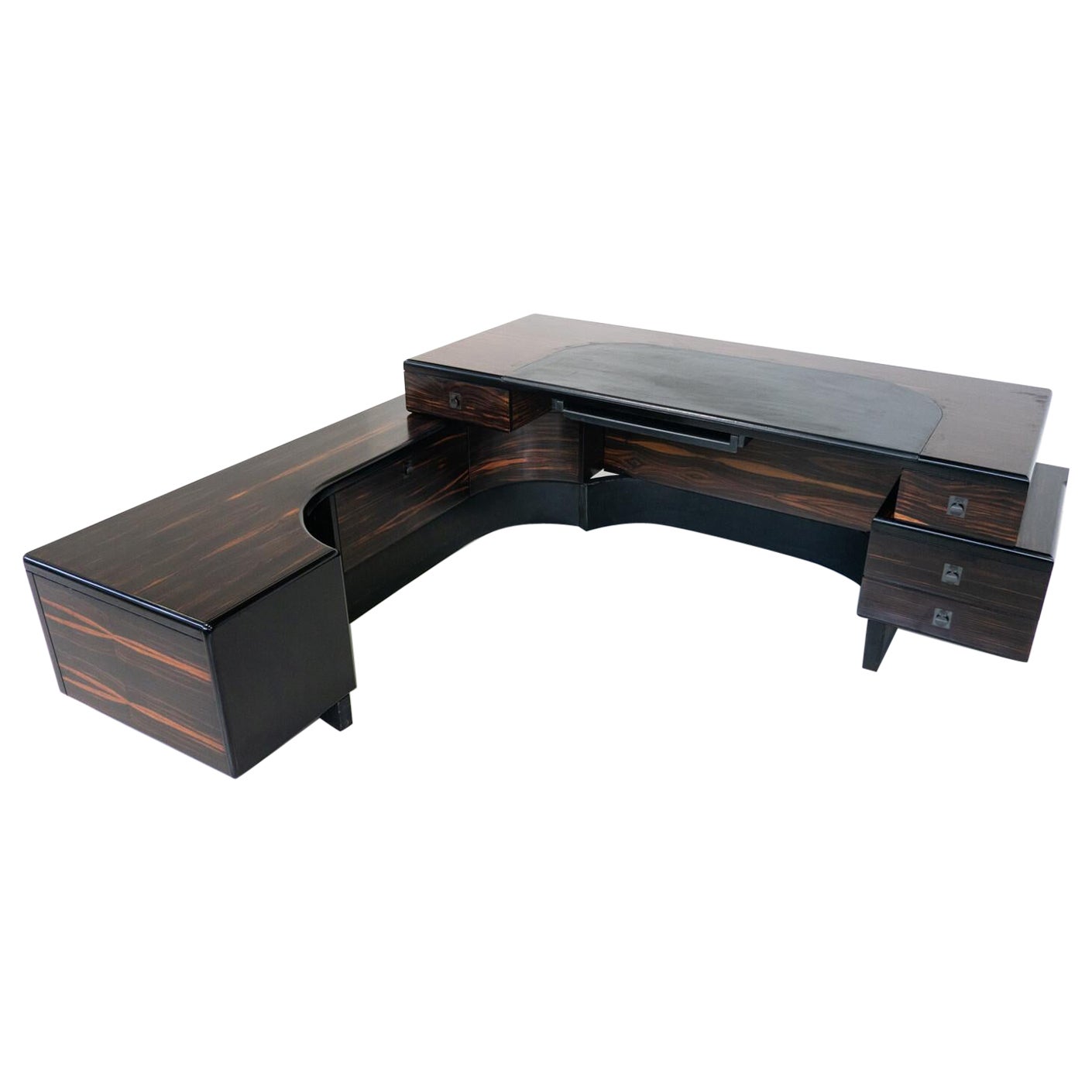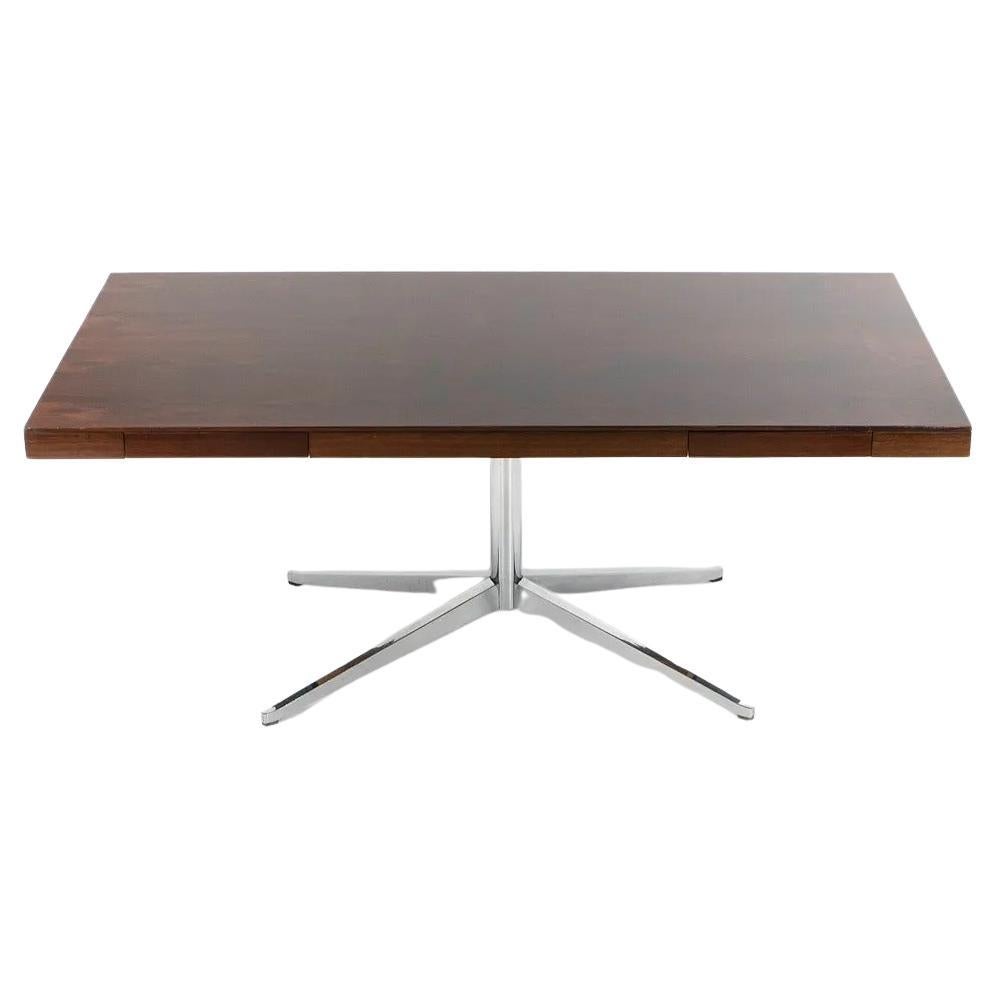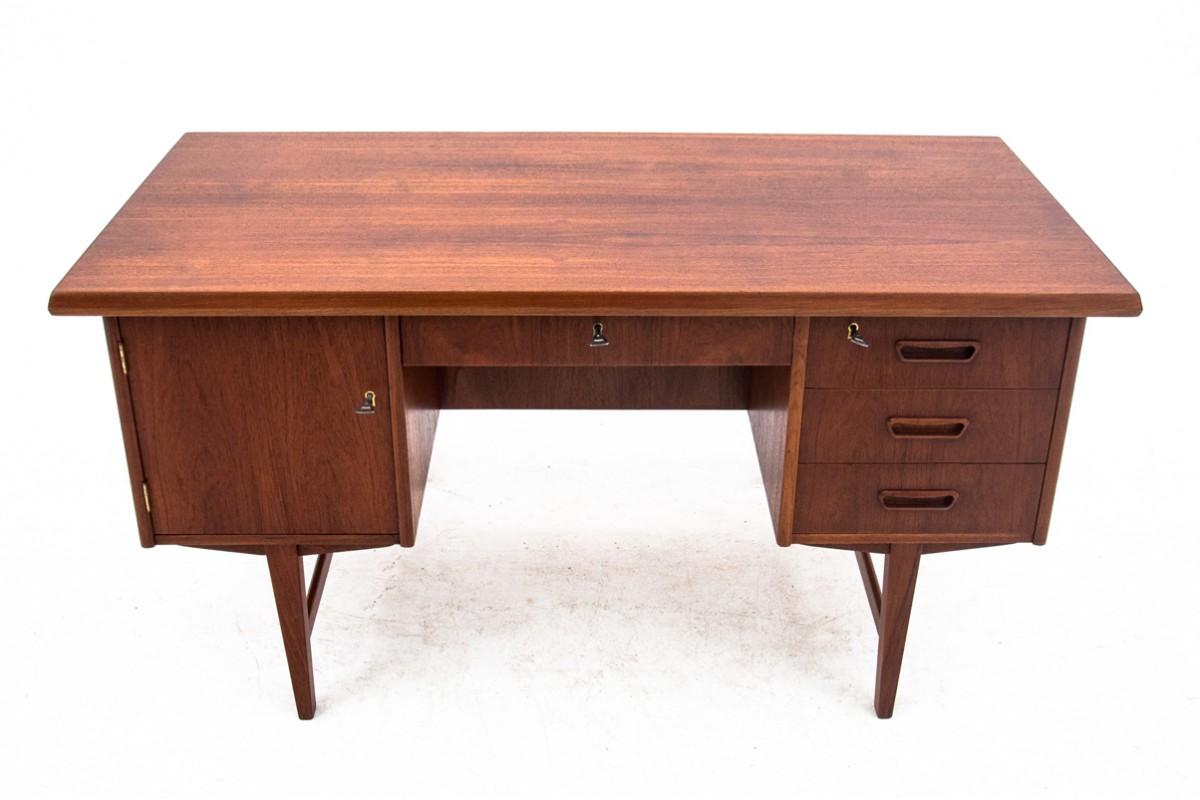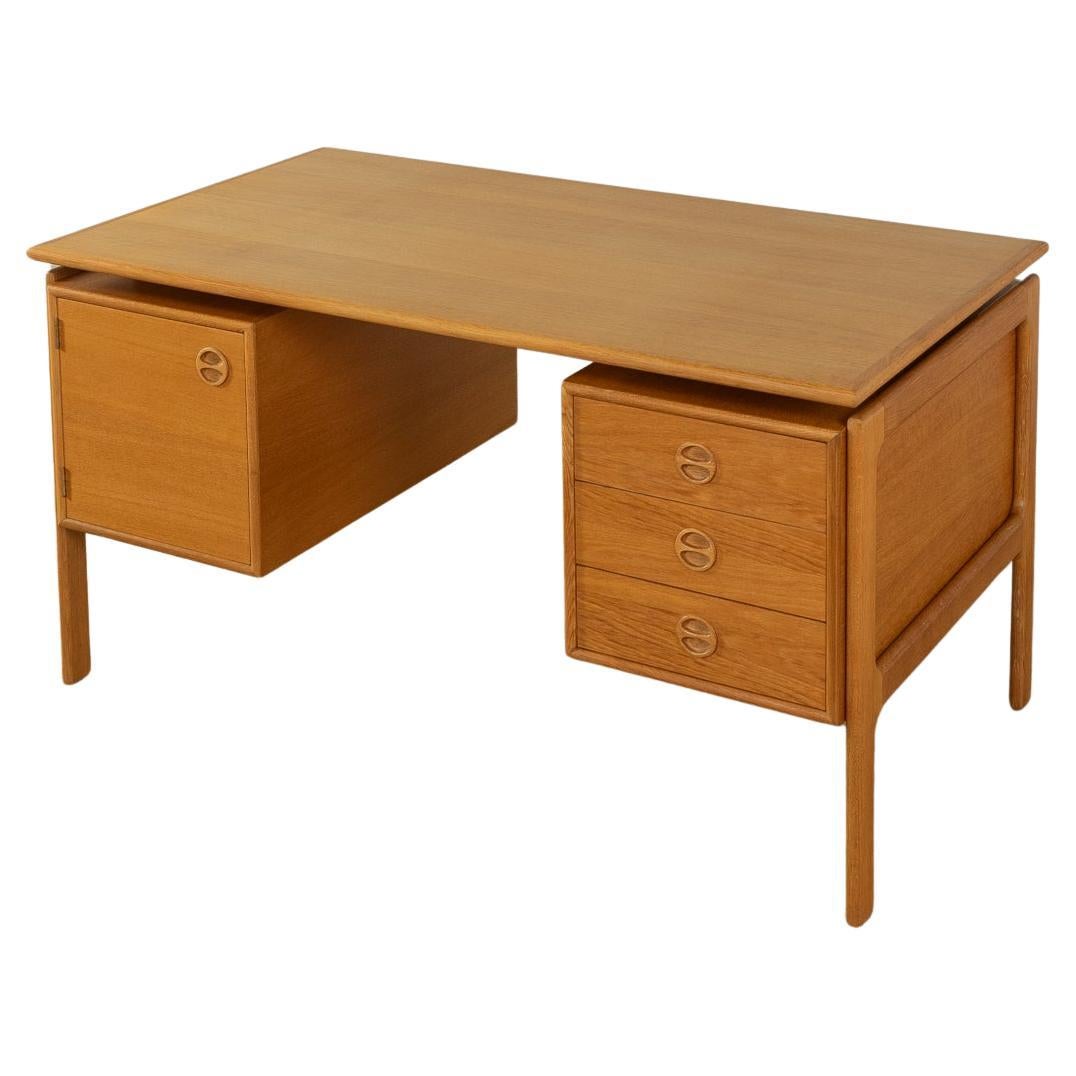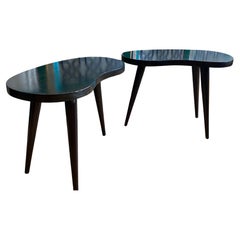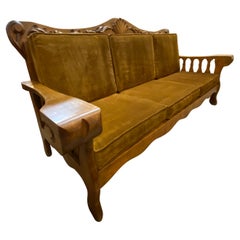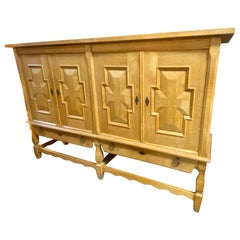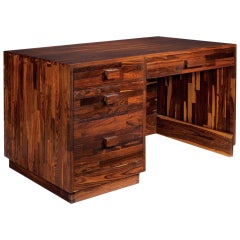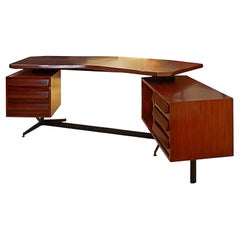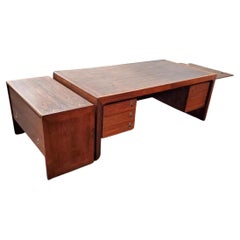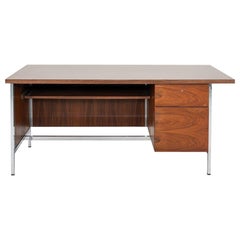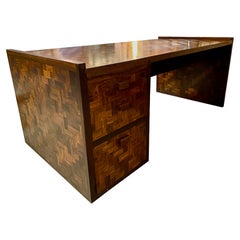
Rare Don Shoemaker Cocobolo Executive Desk, Mexico, circa 1960s.
View Similar Items
Rare Don Shoemaker Cocobolo Executive Desk, Mexico, circa 1960s.
About the Item
- Creator:Don S. Shoemaker (Designer)
- Dimensions:Height: 30 in (76.2 cm)Width: 74.5 in (189.23 cm)Depth: 36 in (91.44 cm)
- Style:Mid-Century Modern (Of the Period)
- Materials and Techniques:Cocobolo
- Place of Origin:
- Period:
- Date of Manufacture:1960s
- Condition:Wear consistent with age and use.
- Seller Location:San Antonio, TX
- Reference Number:1stDibs: LU5057141019302
Don S. Shoemaker
If it weren’t for his honeymoon, American furniture designer Don S. Shoemaker might not have played any role in Mexican modernism of the mid-20th century.
Born in Nebraska in 1919, Shoemaker studied at the School of the Art Institute of Chicago during the 1930s. In the 1940s he got married, and he and his wife, Barbara, ventured to Mexico for their honeymoon. Enamored with the country, Shoemaker decided that Mexico should become the newlyweds' permanent home. They settled in a town called Santa Maria de Guido in Michoacán, where Shoemaker spent his days painting and growing rare plants.
Through horticulture, Shoemaker became inspired by Mexico’s tropical woods, such as cocobolo, a Mexican rosewood, and he decided to delve into furniture design. In the late 1950s, he started a small factory, producing hand-carved desks, armchairs, dining room tables, decorative boxes and bowls, and serveware. The popularity of Shoemaker’s furnishings grew throughout Mexico, and his small factory became the Señal S.A. company, employing more than 100 skilled artisans and carpenters.
Shoemaker’s handcrafted designs were essentially a mid-century modern interpretation of traditional Mexican household furnishings, and like Clara Porset — an unsung Cuban-born activist, writer and designer who drew on Mexican craft traditions in her concepts for furniture — he found inspiration in his adopted country. These influences can be seen in iconic Shoemaker originals like the Sling collection of seating, the Suspension stool and several of his table designs.
Shoemaker's furniture was exhibited in showrooms in several major Mexican cities and across the U.S., including Houston, Chicago, and Los Angeles. (And mid-century modernist ideas that traveled between Mexico and California didn’t make one-way trips — they bounced back and forth.)
After Shoemaker died in 1990, his son George took over Señal S.A. The company closed after George’s death in the early 2000s.
Shoemaker’s Mexican modern furnishings continue to be coveted by avid furniture collectors around the world. From 2016 to 2017, the Museum of Modern Art in Mexico City dedicated a retrospective exhibition to honoring his work.
On 1stDibs, discover a range of vintage Don S. Shoemaker desks, seating, decorative objects and serveware.
More From This Seller
View AllVintage 1960s Mexican Mid-Century Modern Side Tables
Walnut
Vintage 1950s Mexican Spanish Colonial Sofas
Fabric, Wood
Mid-20th Century Credenzas
Pine
Mid-20th Century Danish Mid-Century Modern Credenzas
Oak
Mid-20th Century Danish Mid-Century Modern Side Tables
Ceramic, Oak
Mid-20th Century French Brutalist Bookcases
Oak
You May Also Like
Vintage 1980s Mexican Modern Desks and Writing Tables
Cocobolo
20th Century Italian Mid-Century Modern Desks
Metal
Mid-20th Century Danish Mid-Century Modern Desks
Metal
Vintage 1960s American Modern Desks
Steel, Chrome
Vintage 1960s Italian Mid-Century Modern Desks
Brass
Vintage 1960s American Mid-Century Modern Desks
Wood
